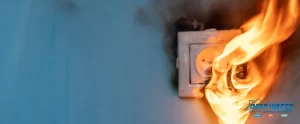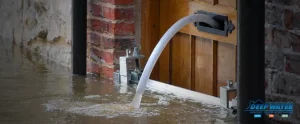One of the most common causes of water damage in many homes is appliance breakdown. Homeowners would know that fridges and air conditioners can leak; dishwashers, washing machines, and other appliances that need water connections can also leak. And if these common household appliances leak and aren’t addressed immediately, the water can spread out without anyone noticing it and cause severe water damage.
Most often than not, these leaks could have been easily prevented if these appliances had been properly maintained. Have a go at this article to know which appliances in your home you should watch out for and how to prevent them from leaking.
Home Appliances That Can Cause Water Damage
Several appliances in your home are particularly susceptible to water damage. Below are five of them.
1. Water Heaters
The hot water heater is one of the most common causes of water damage at home. As we all know, most heaters, especially the old models, have tanks that are always filled with water. However, as the machine ages, corrosion and sediment can set in and cause the appliance to malfunction and eventually leak.
An annual inspection of your heater should be done as this can help prevent water damage and costly repairs. If the machine is ten years or older, you will need to consider getting a replacement, and a tankless model is usually the better choice.
2. Air Conditioners
An air conditioner works by sucking warm indoor air, cooling the air using a refrigerant agent, blowing the now-cooled air into your home, passing through a condenser, and expelling the warm air out of your home. With the condensation process, the subsequent water it’ll create will normally be drained outside your home through a condensate drain line.
If this drain line gets clogged with sludge, dirt, molds, and debris, the water will naturally back up into your home. Another reason why your A/C could leak is when it’s old and damaged. An aging A/C can have a rusty drain pan or condensate line that could easily leak. If your old A/C has a dirty air filter or is low on refrigerant, the evaporator coil will freeze, which will melt when the system is turned off, and the water will eventually overflow into your home.
3. Washing Machines
A washing machine will need to be connected to a water supply using a hose to get its job done. One of the main culprits of a leaky washing machine is when the hose is haphazardly connected to the water supply. Another thing to watch out for to prevent leaking is the condition of the hose. Experts recommend replacing hoses once every five years. However, if you see any signs of deterioration (rust, cracks, dryness), it’s best to replace them immediately.
Also, it’s a good idea to leave enough space between the wall and the machine for movement, especially during the wash cycle. If you’re going on a vacation, shut off the water supply to your washer to prevent any water disaster. A washing machine leak can cause severe damage and can even be dangerous.
4. Refrigerators
In1834, the invention of what is considered the first refrigerator changed how people store food. Today, the fridge is a staple appliance in every modern home, and with that, homeowners know that it will sometimes leak.
A frozen or clogged defrost drain is the most common reason refrigerators will leak. Hot water will be needed to flush the drain and thaw the ice surrounding it. Another common cause of leaky refrigerators is a defective seal, which can lead to excess condensation. To ensure a tight seal for your fridge, check the rubber seals around the door for any gaps. Also, check the waterline and the hose to ensure they are properly connected.
5. Dishwashers
Hand washing the dishes is something that only some enjoy. Apart from being time-consuming, dishes washed manually can be quite messy. To speed up the dishwashing process,Joel Houghtoninvented the first dishwasher in 1850.
Dishwashers malfunction, though, just like other appliances. When they do, the hoses and the valves are usually the culprits. These may not be properly connected to your plumbing, resulting in leaks. Using the wrong detergent can also result in an overflow. Finally, if the machine is more thannine yearsold and spills out too much water while running, it could be time to buy a new one.
How To Prevent Water Damage Due to Leaking Appliances
Water damage because of leaky appliances can be avoided by simply being vigilant. Check regularly beneath and around your appliances for any signs of dampness or pooling water. Other than that, you can consider the tips listed below.
1. Replace Defective Seals
Water may drip down from defective seals, especially those in your refrigerators. If you find these seals having tears or cracks, or have unsmooth surfaces, get them repaired immediately.
2. Check the Tubes
The water supply tubes connected to your appliances can deteriorate, break, or burst. As these are made of plastic, consider replacing them with stainless steel, which lasts longer.
If your tube is behind the appliance, ensure enough space between the two. Otherwise, there will be friction in the connection, which could cause the tube to kink.
3. Clean Your Appliances
Many home appliances have sensitive parts that need to be regularly cleaned. These include the condenser coil of your aircon, your dishwasher’s filter, and your washer’s drain trap. When cleaning them, you must follow the manufacturer’s recommendations, especially if you use soap. Excessive suds can cause problems and can get in the way of the appliance seals.
4. Flush Appliance Debris
Removing dirt and debris from your home appliances should also be done regularly. You should refer to the manufacturer’s guidelines to flush these out properly.
5. Consider an Upgrade
As parts and connections suffer from wear and tear over time, you’ll consequently have leaky appliances in your home. If repairs are becoming too frequent, consider investing in new appliances, as old leaky ones are one of the leading causes of water damage.
Key Takeaway
While water damage is often attributed to floods and sewage backups, a leak from one or more of your home appliances should never be discounted. A leaky home appliance can also become one of the causes of water damage, mainly if the leak is not dealt with immediately.
To prevent leak-susceptible appliances like fridges, air conditioners, dishwashers, and water heaters from causing havoc in your home, make sure they are well-maintained and cleaned regularly.
Let Deep Water Emergency Services and Mitigation help you deal with water damage caused by a leaky home appliance.
Whether it’s because of floods or a leaking washer that you didn’t get to fix, there’s no doubt that water damage is one difficult challenge. Deep Water Emergency Services and Mitigation is here to help you face it head-on. Contact our professional team that handleswater damage mitigation in Denver, CO, anytime so we can help you get back on your feet as soon as possible. We guarantee excellent and lasting mitigation service. Call us now.






